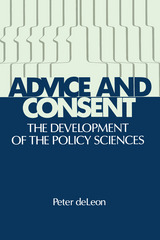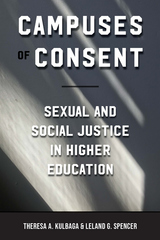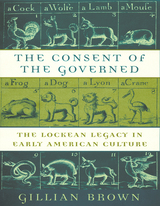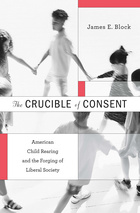


A major new reading of a U.S. public health system shaped by fraught perceptions of culture, race, and criminality
At the heart of Archiving Medical Violence is an interrogation of the notions of national and scientific progress, marking an advance in scholarship that shows how such violence is both an engine of medical progress and, more broadly, the production of empire. It reads the medical archive through a lens that centers how it is produced, remembered, and contested within cultural production and critical memory.
In this innovative and interdisciplinary book, Christopher Perreira argues that it is in the contradictions of settler colonialism and racial capitalism that we find how medical violence is narrated as a public good. He presents case studies from across a range of locations—Hawai‘i, California, Louisiana, Guatemala—and historical periods from the nineteenth century on. Examining national and scientific conceptions of progress through the lens of medicine and public health, he places official archives in dialogue with visual and literary works, patient writing, and more.
Archiving Medical Violence explores the contested public terrains for narrating value and vulnerabilities, bodies and geographical locations. Ultimately, Perreira reveals for us a medical imaginary built on racialized criminality driving contemporary politics of citizenship, memory, and identity.
Retail e-book files for this title are screen-reader friendly with images accompanied by short alt text and/or extended descriptions.

This new book for scholars and university administrators offers a provocative critique of sexual justice language and policy in higher education around the concept of consent. Complicating the idea that consent is plain common sense, Campuses of Consent shows how normative and inaccurate concepts about gender, gender identity, and sexuality erase queer or trans students' experiences and perpetuate narrow, regressive gender norms and individualist frameworks for understanding violence.
Theresa A. Kulbaga and Leland G. Spencer prove that consent in higher education cannot be meaningfully separated from larger issues of institutional and structural power and oppression. While sexual assault advocacy campaigns, such as It's On Us, federal legislation from Title IX to the Clery Act, and more recent affirmative-consent measures tend to construct consent in individualist terms, as something "given" or "received" by individuals, the authors imagine consent as something that can be constructed systemically and institutionally: in classrooms, campus communication, and shared campus spaces.

Free and informed consent is one of the most widespread and morally important practices of modern health care; competence to consent is its cornerstone. In this book, Becky Cox White provides a concise introduction to the key practical, philosophical, and moral issues involved in competence to consent.
The goals of informed consent, respect for patient autonomy and provision of beneficent care, cannot be met without a competent patient. Thus determining a patient's competence is the critical first step to informed consent. Determining competence depends on defining it, yet surprisingly, no widely accepted definition of competence exists. White identifies nine capacities that patients must exhibit to be competent. She approaches the problem from the task-oriented nature of decision making and focuses on the problems of defining competence within clinical practice. Her proposed definition is based on understanding competence as occurring in a special rather than a general context; as occurring in degrees rather than at a precise threshold; as independent of consequential appeals; and as incorporating affective as well as cognitive capacities.
Combining both an ethical overview and practical guidelines, this book will be of value to health care professionals, bioethicists, and lawyers.

This collection of essays addresses a number of questions regarding the role of consent in marriage and in sexual relations outside of marriage in ancient and medieval societies. Ranging from ancient Greece and Rome to the Byzantine Empire and Western Medieval Europe, the contributors examine rape, seduction, and the role of consent in establishing the punishment of one or both parties; the issue of marital debt and spousal rape; and the central question of what is perceived as coercion and what may be the validity or value of coerced consent. Other concepts, such as honor and shame, are also investigated.
Because of the wide range--in time and place--of societies studied, the reader is able to see many different approaches to the question of consent and coercion as well as a certain evolution, in which Christianity plays an important role.

What made the United States what it is began long before a shot was fired at a redcoat in Lexington, Massachusetts in 1775. It began quietly in homes and schoolrooms across the colonies in the reading lessons women gave to children. Just as the Protestant revolt originated in a practice of individual reading of the Bible, so the theories of reading developed by John Locke were the means by which a revolutionary attitude toward authority was disseminated throughout the British colonies in North America that would come to form in the United States. Gillian Brown takes us back to the basics to understand why Americans value the right to individual self-determination above all other values. It all begins with children.
Locke crucially linked consent with childhood, and it is his formulation of the child's natural right to consent that eighteenth-century Americans learned as they learned to read through Lockean-style pedagogies and textbooks. Tracing the Lockean legacy through the New England Primer and popular readers, fables, and fairy tales, Brown demonstrates how Locke's emphasis on the liberty--and difficulty--of individual judgment became a received notion in the American colonies.
After the revolution, American consent discourse features a different prototype of individuality; instead of wronged children, images of seduced or misguided women predominate postrevolutionary culture. The plights of these women display the difficulties of consent that Locke from the start realized. Individuals continually confront standards and prejudices at odds with their own experiences and judgments. Thus, the Lockean legacy to the United States is the reminder of the continual work to be done to endow every individual with consent and to make consent matter.
What emerged in America was a new and different attitude toward authority in which authority does not belong to the elders but to the upcoming generations and groups. To effect this dramatic a change in the values of humankind took a grassroots revolution. That's what this book is about.

A democratic government requires the consent of its citizens. But how is that consent formed? Why should free people submit to any rule? Pursuing this question to its source for the first time, The Crucible of Consent argues that the explanation is to be found in the nursery and the schoolroom. Only in the receptive and less visible realms of childhood and youth could the necessary synthesis of self-direction and integrative social conduct—so contradictory in logic yet so functional in practice—be established without provoking reservation or resistance.
From the early postrevolutionary republic, two liberal child-rearing institutions—the family and schooling—took on a responsibility crucial to the growing nation: to produce the willing and seemingly self-initiated conformability on which the society’s claim of freedom and demand for order depended. Developing the institutional mechanisms for generating early consent required the constant transformation of child-rearing theory and practice over the course of the nineteenth century. By exploring the systematic reframing of relations between generations that resulted, this book offers new insight into the consenting citizenry at the foundation of liberal society, the novel domestic and educational structures that made it possible, and the unprecedented role created for the young in the modern world.

“From the bedroom to the classroom to the courtroom, ‘consent’ is a key term in our contemporary sexual ethics. In this timely reexamination, Manon Garcia deftly reveals the hidden complexities of consent and proposes how to reconceptualize it as a tool of liberation.”
—Amia Srinivasan, author of The Right to Sex
A feminist philosopher argues that consent is not only a highly imperfect legal threshold but also an underappreciated complement of good sex.
In the age of #MeToo, consent has become the ultimate answer to problems of sexual harassment and violence: as long as all parties agree to sex, the act is legitimate. Critics argue that consent, and the awkwardness of confirming it, rob sex of its sexiness. But that objection is answered with the charge that opposing the consent regime means defending a masculine erotics of silence and mystery, a pillar of patriarchy.
In The Joy of Consent, French philosopher Manon Garcia upends the assumptions that underlie this very American debate, reframing consent as an ally of pleasure rather than a legalistic killjoy. In doing so, she rejects conventional wisdom on all sides. As a legal norm, consent can prove rickety: consent alone doesn’t make sex licit—adults engaged in BDSM are morally and legally suspect even when they consent. And nonconsensual sex is not, as many activists insist, always rape. People often agree to sex because it is easier than the alternative, Garcia argues, challenging the simplistic equation between consent and noncoercion.
Drawing on sources rarely considered together—from Kantian ethics to kink practices—Garcia offers an alternative framework grounded in commitments to autonomy and dignity. While consent, she argues, should not be a definitive legal test, it is essential to realizing intimate desire, free from patriarchal domination. Cultivating consent makes sex sexy. By appreciating consent as the way toward an ethical sexual flourishing rather than a legal litmus test, Garcia adds a fresh voice to the struggle for freedom, equality, and security from sexist violence.




READERS
Browse our collection.
PUBLISHERS
See BiblioVault's publisher services.
STUDENT SERVICES
Files for college accessibility offices.
UChicago Accessibility Resources
home | accessibility | search | about | contact us
BiblioVault ® 2001 - 2024
The University of Chicago Press









